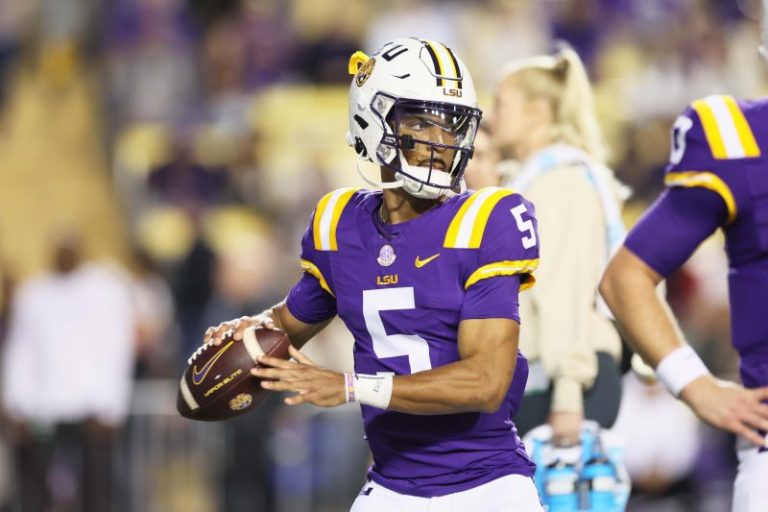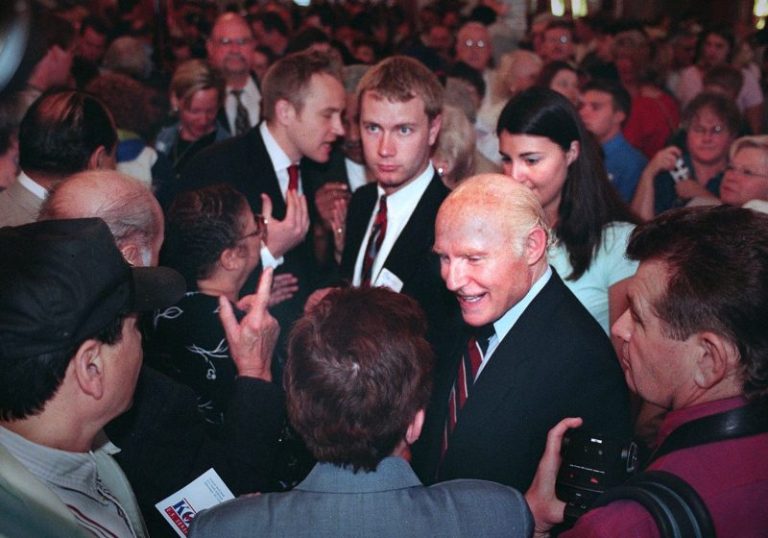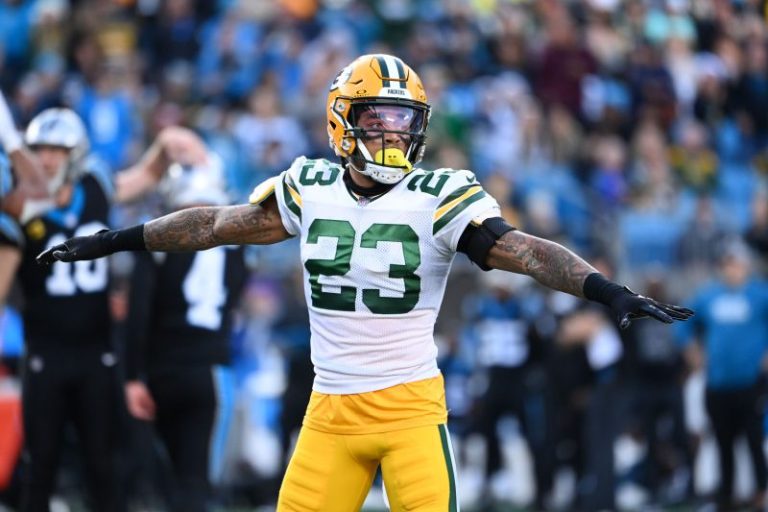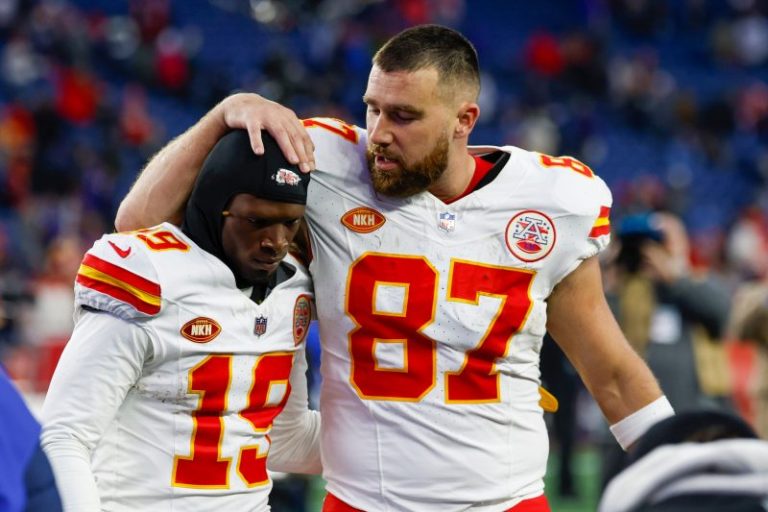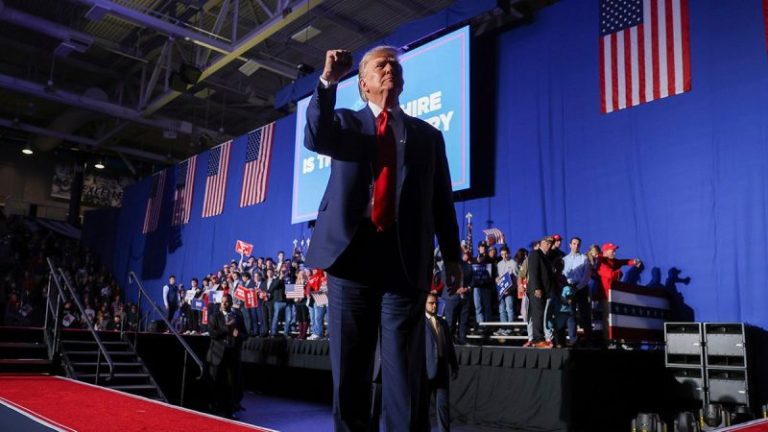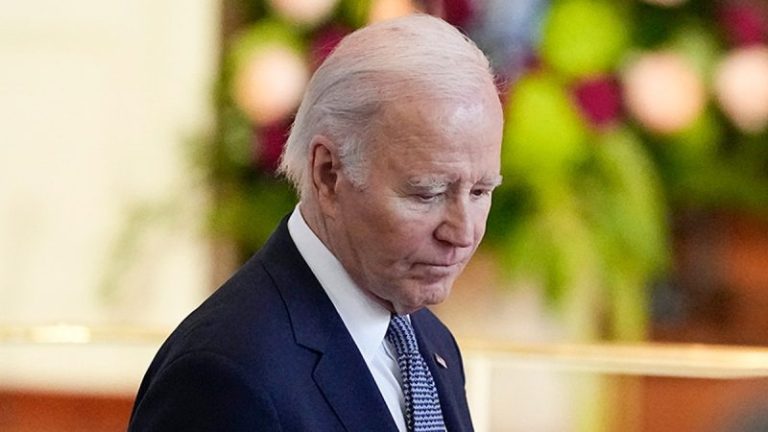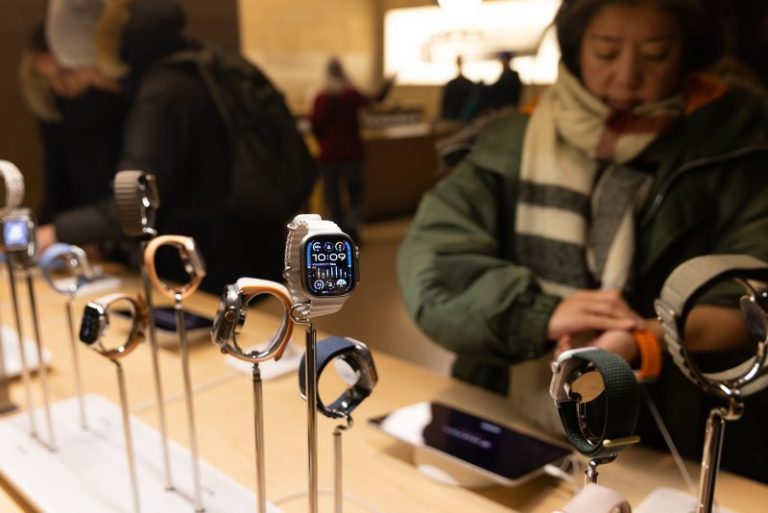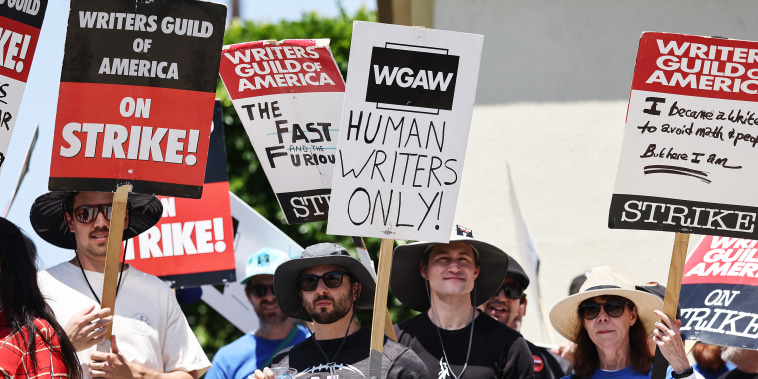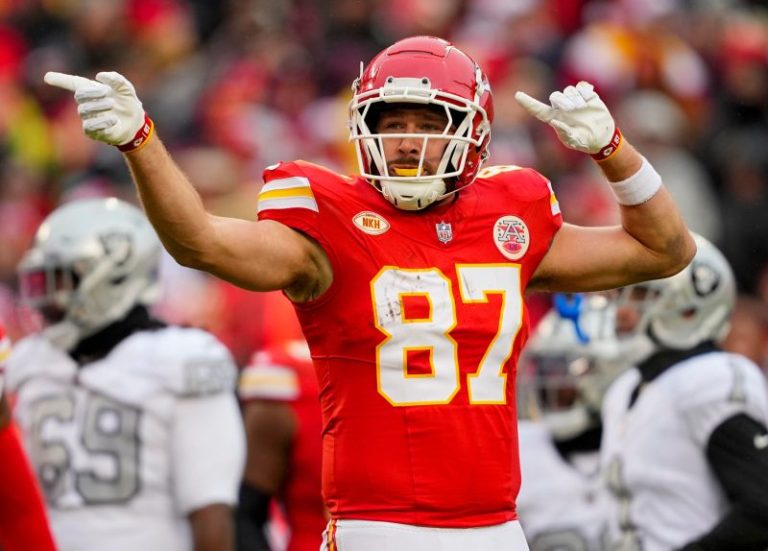Herb Kohl, the former U.S. senator, Milwaukee Bucks owner and retail shopping magnate, died Wednesday afternoon at the age of 88 after a brief illness.
Kohl’s death was announced by the Herb Kohl Foundation.
“Throughout his life, Herb Kohl always put people first — from his employees and their families to his customers and countless charitable organizations and efforts,” JoAnne Anton, director of giving for Herb Kohl Philanthropies, recalled.
“Herb Kohl Way isn’t just the name of a street in front of the Fiserv Forum. The Herb Kohl Way perfectly sums up a legacy of humility, commitment, compromise, and kindness to countless people he worked with, served and helped along the way. Those values will live on through his Foundation.”
Kohl’s leading role in Wisconsin’s political, business and sporting culture gave him a unique public profile in this state.
It was one that combined great wealth and influence with a remarkably low-key, even shy persona.
His plunge into electoral politics in 1988 at the age of 53 was built on his household name and goodwill forged through the Kohl supermarkets and department stores, and his purchase of Milwaukee’s NBA franchise. That move was widely seen as saving the team from leaving.
Opponents in his first race accused him of trying to buy a Senate seat. Kohl’s answer — that is ability to finance his own candidacy made him independent — came in the form of one of Wisconsin’s more effective and memorable campaign slogans: ‘Nobody’s Senator but Yours.’
Kohl’s four Senate victories — the last three in landslides — give him arguably the most bulletproof electoral track record in modern Wisconsin history. Unlike other political juggernauts such as Bill Proxmire (his Democratic predecessor in the Senate) or former Republican Gov. Tommy Thompson, Kohl never lost a race.
A native son of Wisconsin, Kohl was a driving force in expanding the family-owned grocery and department store businesses into a longtime Wisconsin success story.
He was part of the group that brought the Milwaukee Brewers baseball team here in 1970. In 1985, he bought the Milwaukee Bucks to keep the team in his hometown.
Much was written over the years about multimillionaire Kohl’s immense wealth. The only time it was readily apparent, however, was when he was making headlines by purchasing an NBA team or using his own money to run for public office
Kohl was inevitably called a quiet, reserved, private man.
For all his soft-spoken and self-effacing manner, he was intensively competitive, friends and family agreed.
‘How rich he was was never very important to him,’ said brother Sidney Kohl, as Herb Kohl was running for the Senate in 1988.
‘Making a profit was more like the score in the ball game,’ he continued. ‘It was winning.’
Kohl was consistently ranked as one of the wealthiest members of Congress, with a net worth estimated at $300 million in 1999, according to one review of partial figures.
Money was not part of his childhood.
Herb Kohl was a son of Jewish immigrants
He was the son of Jewish immigrants, his mother, Mary, from Russia, and father, Max, from Poland. His father first worked at a Schlitz bottle-cap factory, saving money to open a small grocery store at E. Lincoln and S. Kinnickinnic Aves., in the late 1920s.
In 1941, when young Herb was 6, his father owned a couple of stores. The family moved to N. 51st St., just north of Burleigh, the West Side neighborhood that became home.
‘They came with zero,’ Kohl later said of his parents. ‘None of us ever thought we could get by on anything less than a full effort in life.’
Kohl attended Sherman Elementary School and Washington High School, then spent a lonely semester at the University of Michigan. He switched to the University of Wisconsin-Madison reuniting with his childhood friends.
One of those friends was Allan Selig — better known as Bud — who was his UW roommate.
Kohl earned a bachelor’s degree in business administration from the University of Wisconsin-Madison and a master’s degree from Harvard Graduate School of Business Administration.
He served with the U.S. Army for six months, then joined the family business in 1959. There were then a dozen Kohl’s supermarkets. Brothers Sidney and Allen also were involved in the business.
Kohl, whose first paying job was working as Kohl’s bag boy, learned every aspect of the business.
Two decades later, thanks in large part to a savvy Herb Kohl, the family business had grown to 74 supermarkets, including 12 in Illinois. Its share of the greater Milwaukee grocery market grew from one-tenth to nearly half.
‘We just beat the hell out of everybody. We just did it,’ Kohl said in an a 1988 political story. ‘The time came and went, and we just beat them up. And we did it clean. Always above board. We were like the old (Green Bay) Packers. They didn’t cheat anybody. They just beat the hell out of everybody.’
Kohl routinely visited 30 to 40 Kohl’s stores a week. He personally interviewed every full-time employee, from executives and managers to the grocery checkers.
‘He knew the families of the employees and the names of their husbands or wives,’ said former employee Frank Spicuzza, speaking years later. ‘He would often say, ‘How’s your wife?’ and name her.’
As Kohl once said: ‘If your employees think you are a jerk, you can’t succeed.’
‘My father was a person who had a very strong control over his ego and his needs,’ Kohl once said. ‘He was a very driven man, but he was not a person who had the need to belittle people or fight with people or reduce them. He learned to control those impulses, which we all have, I think. He was a very controlled, disciplined person, and he was very influential on me in that respect.’
The family enterprise also included 10 department stores and 13 drug, beverage and bakery stores. and substantial real estate.
Drastic change came in 1972 when the Kohl family received an offer too good to refuse, especially as warehouse operations began to claim a greater share of the local grocery market.
They sold 80% of the business to a British tobacco firm for a reported $72 to $80 million. Herb Kohl retained a financial interest, served as the chain’s chief executive officer until 1979 when the majority owners exercised their purchase option.
For Kohl, it was an abrupt and wrenching transition, not unlike a death or divorce. He later called it a ‘watershed in my own personal development.’
It meant that he was ‘starting over.’
He began running the Herbert Kohl Investment Co., maintaining his low-key approach.
‘I do fine,’ he said. ‘I’m lucky enough to deal with some very intelligent people.’
Ownership of NBA’s Milwaukee Bucks
He found a chance for change with the 1985 purchase of the Milwaukee Bucks, liquidating some of his assets to cover then-record price of nearly $20 million for an NBA franchise.
Kohl maintained ownership of the Bucks until he sold the team to New York hedge-fund investors Marc Lasry and Wes Edens in 2014 for $550 million. He simultaneously pledged $100 million to the construction of a new arena, which became Fiserv Forum next door to the previous home, the BMO Harris Bradley Center.
As part of the transaction, Edens and Lasry vowed to keep the franchise in Milwaukee and pledged their own $100 million to a new building.
The arena opened for the 2018-19 season, and the Bucks celebrated their first year in the new building with the best regular-season record in the NBA and the franchise’s first trip to the Eastern Conference finals since 2001.
‘This is a major step forward in my goal in keeping the Bucks here,’ Kohl said.
And in 2021, he witnessed the Bucks winning the NBA title, rode in the team’s championship parade and later received a championship ring and a standing ovation from the crowd.
‘I didn’t go into this to make money,’ Kohl said when he first bought the team. ‘I just hope to break even. Money doesn’t motivate me. The pursuit of the almighty dollar? That’s not me.’
Instead, Kohl saw the team as an investment in Milwaukee, believing its loss would have been a psychological and economic disaster for a community struggling to recover from a recession and other adversities.
‘Milwaukee has been very, very good to me and to my family, for many, many years,’ Kohl said. ‘I like it and I’m comfortable here. Whenever I return, I feel like I’m home.’
Did he meddle with the team, as Don Nelson had said in 1987? As owner of the Milwaukee Bucks, Kohl wasn’t afraid to spend money or to make hard choices. In 2003, he traded Ray Allen, Sam Cassell and Glenn Robinson, then sent high-paid George Karl packing.
He also nearly sold the team to former NBA superstar Michael Jordan that year but elected to keep his total ownership, and he held it for another decade. The Bucks made the playoffs five times during Kohl’s ownership tenure after the 2001 run, but none of those teams made it out of the opening round of the playoffs, and the franchise appeared to have stagnated.
‘I wasn’t going to live forever,’ Kohl said after the sale. ‘I approached a time in life when I had to think about approaching the idea of succession and then it was brought to a head the need for a new building and the fact that this is a project over several years. It doesn’t get done in a short time. It came to me and it was very clear that the owners of the team over the next period of years should have a central role in the project. Not me, but them.’
Before he took ownership, Kohl was involved in earlier unsuccessful efforts to bring the National Basketball Association to the city. He turned down the chance to buy the new Milwaukee Bucks franchise for $2 million in 1968, and businessmen Marvin Fishman and Wes Palalon bought it instead.
‘Milwaukee didn’t need me then,’ Kohl said in 1985. ‘I think maybe Milwaukee needs me now.’
The quiet businessman — who had flown pretty much under the radar for most of his life — was suddenly in the civic spotlight. Exceptions to that were rare.
Active in Jewish causes, Kohl served as general chairman of the 1971 United Way campaign in the Milwaukee area, then known as the United Fund. When the campaign fell short of its goal, Kohl wrote a check to cover the remaining $25,000 shortfall.
Kohl served as state Democratic Party chairman from 1975 to 1977. He began the HHK Foundation for Contemporary Art in 1977, acquiring about 50 pieces from nationally recognized artists.
Some were donated to the Milwaukee Art Museum and other museums; others were sold to benefit the foundation’s work, which came to be directed toward social issues. In 1970, Kohl was also part of a group of investors that brought the Seattle Pilots baseball team to Wisconsin to become the Milwaukee Brewers.
Herb Kohl’s life in politics
Then came politics in 1988.
Kohl had flirted with a Senate run two years earlier but decided against it. This time, with the incumbent Democrat William Proxmie announcing he would retire, Kohl jumped into the race. And he faced a strong challenge, beginning with the Democratic primary, where he defeated former Gov. Tony Earl, attorney Ed Garvey and Secretary of State Doug La Follette.
His political promises were simple and often heartfelt.
‘I promise if I am elected, I will work my heart out for you, each and every day,’ Kohl declared.
Campaigning before a small group of senior citizens in Superior, his gaze was intense but his words were gentle. ”I give you my love … and I hope you’ll consider me this November,’ he said.
Voters did. Kohl defeated Republican Susan Engeleiter, with about a 100,000 vote margin.
If a multimillionaire could be a man of the people, Kohl was that man. He liked to eat at Benjamin’s on Oakland Ave. in Shorewood or at a George Webb restaurant. His luxury apartment commanded a view of Lake Michigan and Prospect Ave., but was basically a convenient, private place to live. He usually rose before dawn, going to swim each morning.
An admirer of President John F. Kennedy, Kohl voiced support for improving educational opportunities, especially for the poor. He pushed for cuts in defense spending; establishing a national child care training and financial aid program; imposing trade sanctions on countries that allow illegal drug trade to flourish; reforming political campaign funding; and hiking federal income taxes for the very rich.
Despite all of the above, he bristled at being labeled a liberal.
‘I’m running as a businessman,’ he said. ‘I’m a person who hasn’t spent a nickel until he made a nickel.’
Kohl often laid low, staying uncommitted on major issues in the interest of further study and political effectiveness.
‘I’d like to keep my mind open so I can make the best decision without pre-committing,’ he said during the 1994 Senate race.
‘I might have my own personal opinions,’ he then said. ‘When I was in business I could have my opinions and make the decision and move it forward. But that’s not where I am today. I’m in a legislative body, and you must never get caught in positions that are too rigid because then you’re ‘ in a situation where you are ineffective.’
Kohl served on the Senate Judiciary Committee, advocating for Wisconsin Supreme Court Justice Diane S. Sykes to be confirmed in 2004 to the 7th U.S. Circuit Court of Appeals in Chicago.
Over the years, Kohl also made substantial donations, including $25 million to the Kohl Center Arena at the University of Wisconsin-Madison. Announced in 1995, It was then the largest single donation in UW history.
‘The more you give, the richer you get,’ he once said. ‘That’s God’s way of taking care of things.’
In 1976, Kohl built a private dude ranch for himself in Red Hills, Wyoming. A few years earlier, he had visited friend in Wyoming. He learned to ride horses and fell in love with the magnificent setting.
The ranch became a retreat, including for his circle of friends nicknamed the ‘Gang of 12.’ He once called basketball coach and legend Al McGuire his best friend.no sure if considered part of official gang.
At one point, he owned one-third of all the privately owned land in the Gros Ventre Valley south of Grand Teton National Park.
In 1983, in the first-ever such land swap, Kohl agreed to restrict development on 1,200 scenic acres in Wyoming in exchange for the right to develop other land. He wanted the land preserved for environmental reasons. He also wanted fair value for doing do.
For Kohl, it was always about creating value, improving on the status quo.
‘I think he wants to be remembered for more than merely saving the Bucks and having built a big business,’ said David Axelrod, a friend and Chicago political consultant, during the 1988 campaign.
‘I think he’s tired of that,’ he said. ‘I mean, how many millions can you make?’
‘Life is change,’ Kohl said. ‘I look forward to the challenge.’
That was the one thing in Kohl’s life that never changed.
This post appeared first on USA TODAY

